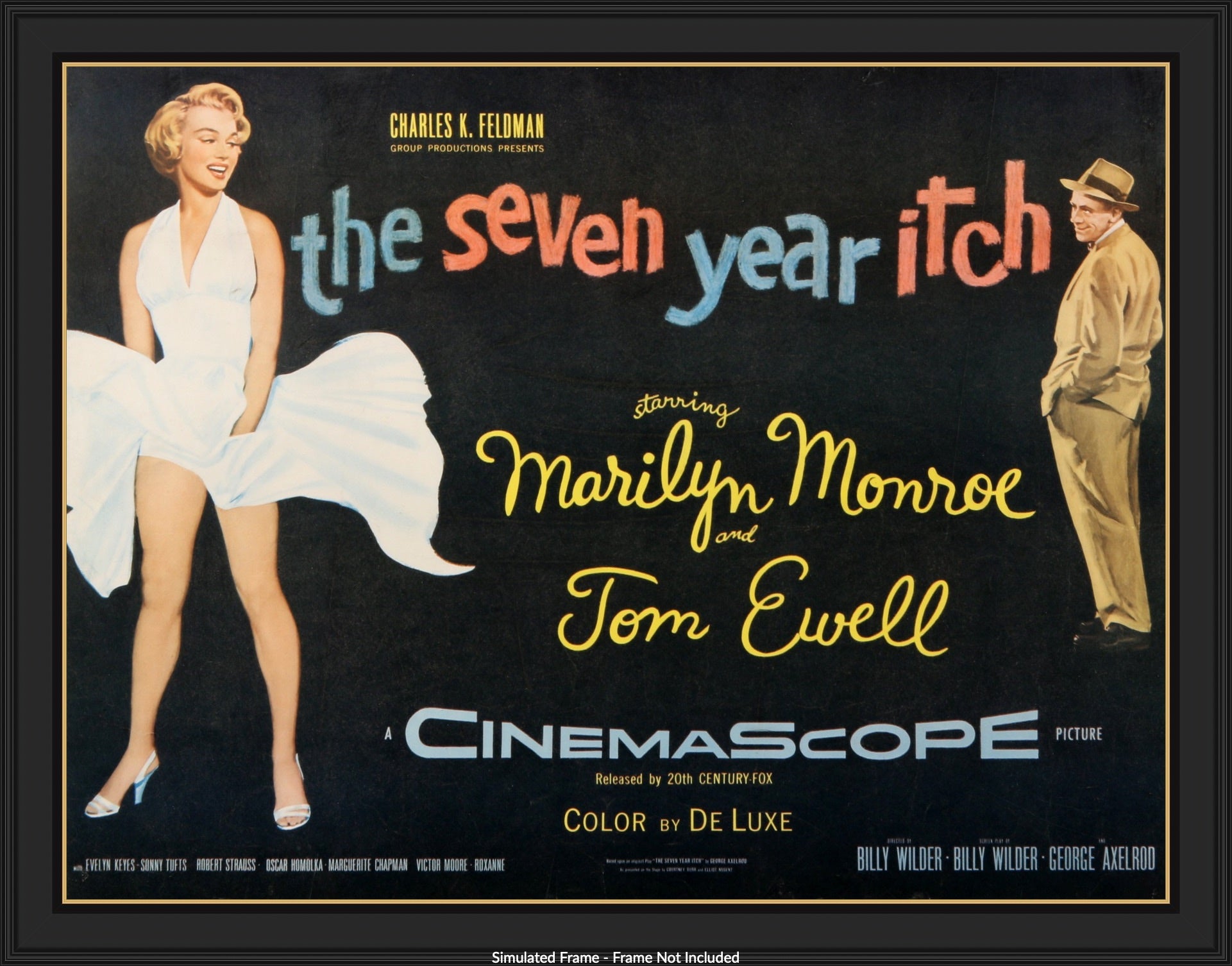
I wouldn’t go that far, because Wilder was a witty director and he was still able to deliver plenty of funny moments – the sequence where Ewell’s Richard Sherman is playing From Here to Eternity on the beach with his wife’s best friend is bound to steal some laughs, even though it’s just another fantasy. “A nothing picture”, the director himself would name it later, claiming he wished he had never made it under such moral restrictions. And that’s the big shortcoming of the movie. But in the screen version, the husband is no longer a conflicted adulterer, being neutered to appease the Hays Code, which made it necessary to change the play’s actual affair with a fantasy one, the product of the male character’s vivid imagination, and a harmless flirtation (and the absolute must Hollywoodian happy ending, I might add).

The husband is Tom Ewell, reprising his role from the play, and the girl is Marilyn Monroe. This summer marks the 60th anniversary of The Seven Year Itch, Billy Wilder’s film adaptation of George Axelrod’s play about a middle-aged husband left alone for the summer while his wife and son are vacationing in Maine, and the girl in the apartment upstairs.

She is very good, downright funny, and, yes, completely irresistible.

That’s also because Marilyn proves that she was a fine comedic actress (and “a piece of history, as much part of our culture as the famous portrait of her by Andy Warhol”, as Paola Saltari, author of the book A Matter of Style: Intimate Portraits of 10 Women Who Changed Fashion, rightfully acknowledges), an aspect often overshadowed by her sex symbol image. And it’s not only thanks to her apotheosis-of-sex-appeal-look and to that particular scene that’s become one of the most famous in film history – Marilyn standing over a subway gate as the breeze blows up her skirt – as transcendent as that dress and that moment may be. Toned down from its Broadway origins thanks to the Hollywood Production Code, The Seven Year Itch (1955) still manages to be a good comedy, largely due to Marilyn. When Marilyn Monroe leaves the screen, so does our interest.


 0 kommentar(er)
0 kommentar(er)
